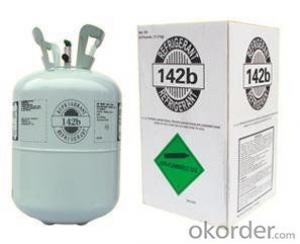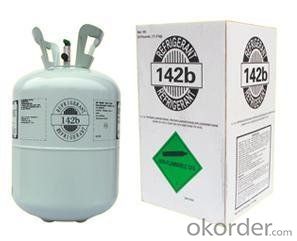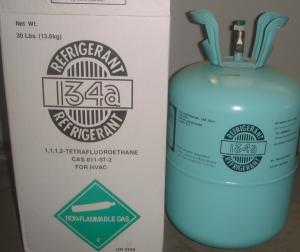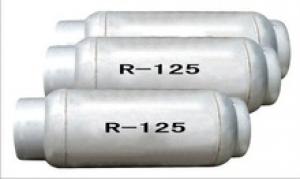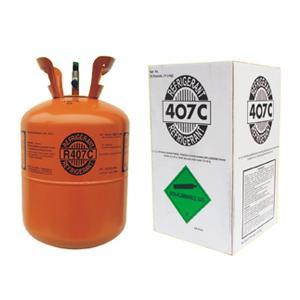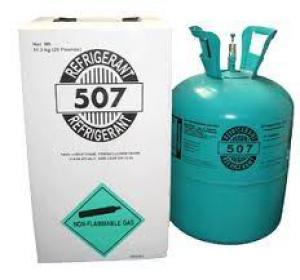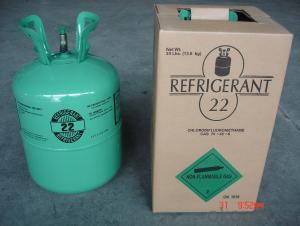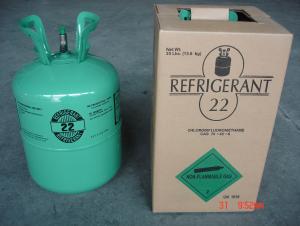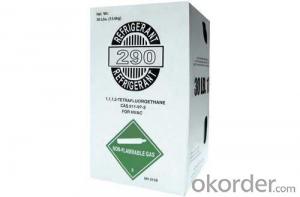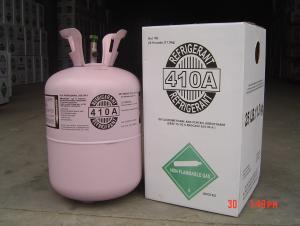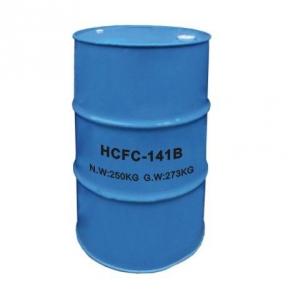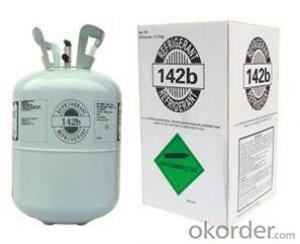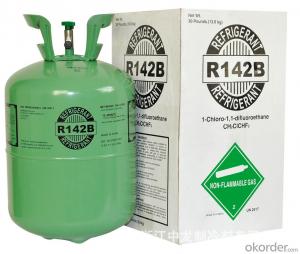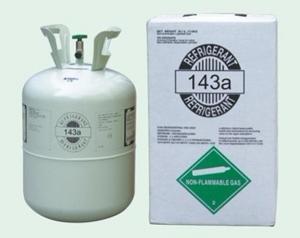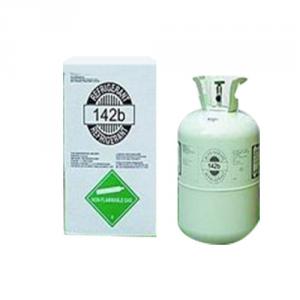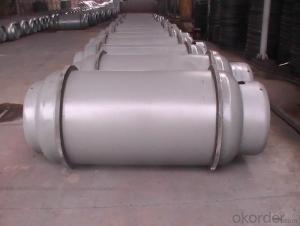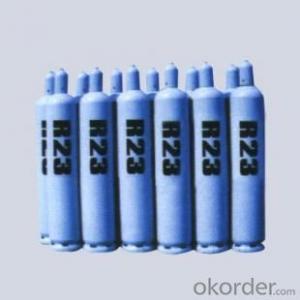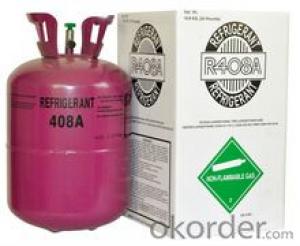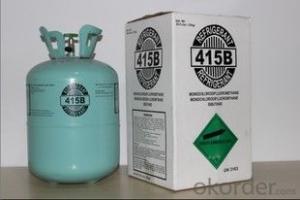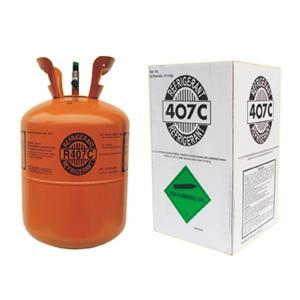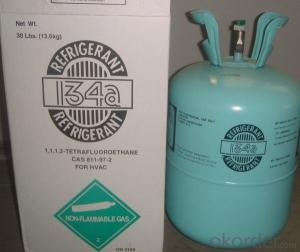Monochlorodifluoroethane (R142b)
- Loading Port:
- Shanghai
- Payment Terms:
- TT OR LC
- Min Order Qty:
- -
- Supply Capability:
- 10000MT m.t./month
OKorder Service Pledge
OKorder Financial Service
You Might Also Like
R142b
Property of chloride:
Chemical formula: CCIF2CH3
Molecular weight: 100
Boiling Point,101.3Kpa,: -9.2
Critical temperature,,: 136.45
Critical pressure,Mpa: 4.02
Liquid density g/cm3 30: 1.096
Vapor pressure(absolute pressure),21,Mpa:0.3
Quality standard:
Appearance: Colorless,no cloudy
Odor: Odorless
Purity≥%:99.9
Moisture ≤%:0.001
Acidity≤%HCI:0.0001
Residue on evaporation≤%:0.01
Property and application:
It mainly used on blend refrigerant 502 which is an azeotrope of f22angf115.
Application: Used as working liquid in air-conditioner, heat pump and inductive
medium of temperature controller under high temperature, used as blowing agent of polyolefine after mixing with HCFC-22(60:40), and also used as chemical raw material.
Packing :30Ib/13.6kg,501b/22.7kg,400kg/400L,800kg/800L,1000kg/1000L,ISOtank.
- Q: Are the asphalt and peat kinds of vegetables have heavy metal?
- Asphalt is a hydrophobic material, it is impermeable, and almost insoluble in water, acetone, ether, dilute ethanol, dissolved in carbon disulfide, carbon tetrachloride, sodium hydroxide.
- Q: China's largest asphalt production base where
- Oil asphalt is the residue after distillation of crude oil. According to the degree of extraction of different, at room temperature into a liquid, semi-solid or solid. Oil asphalt color black and shiny, with a high temperature. Because it is in the production process has been distilled to 400 ℃ or more, and thus contain little volatile components, but there may still be high-molecular hydrocarbons without volatile, these substances are more or less harmful to human health.
- Q: The functional group of the derivative of the hydrocarbon
- Common functional groups are: carbon-carbon double bond, -OH-COOH-CHO-NH2, often react, replace (including halogenation, nitration, sulfonation, esterification, hydrolysis, etc.), addition, elimination, addition polymerization , Organic matter oxidation and reduction, color and so on.
- Q: Hydrocarbons and hydrocarbon derivatives are not all non-electrolytes
- Hydrocarbons are, derivatives are not necessarily, such as organic acids (formic acid, acetic acid, etc.)
- Q: The role of aromatic hydrocarbons
- Aromatic hydrocarbons referred to as "aromatic hydrocarbons", usually refers to the molecule containing benzene ring structure of the hydrocarbons. Is a closed-chain type. With the basic structure of the benzene ring, the history of the early discovery of such compounds have more aromatic flavor, so called these Hydrocarbons are aromatic hydrocarbons, and hydrocarbons that are later found to have no aromatic flavor are also commonly used in this way, such as benzene, naphthalene, etc. The homology of benzene is CnH2n-6 (n≥6).
- Q: Artemisinin is not a derivative of hydrocarbons
- There are many types of hydrocarbons, flammable and explosive materials, the structure of the known hydrocarbons in more than 2000. The hydrocarbon is the parent of the organic compound, and the other various organic compounds can be regarded as derivatives of one or more hydrogen atoms in the hydrocarbon molecule being replaced by atoms or radicals of other elements.
- Q: The aromatic hydrocarbon derivative refers to monocyclic or polycyclic
- To see what is the derivative of aromatic hydrocarbons, by its own is a single ring or multi-ring decision
- Q: Organic chemistry studies the performance of hydrocarbons and their derivatives, either right or wrong
- Correct
- Q: From the molecular level, are not all the energy obtained from the redox reaction?
- You find the block out of the lithium battery thrown into the fire try ........ look at how the energy density
- Q: NH4HCO3 and so have C atoms ah, why still inorganic
- Not all carbon compounds are organic compounds, CO, CO2, carbonic acid, carbonates (including salt and acid salts), metal carbides, cyanides, thiocyanates are inorganic compounds.
Send your message to us
Monochlorodifluoroethane (R142b)
- Loading Port:
- Shanghai
- Payment Terms:
- TT OR LC
- Min Order Qty:
- -
- Supply Capability:
- 10000MT m.t./month
OKorder Service Pledge
OKorder Financial Service
Similar products
Hot products
Hot Searches
